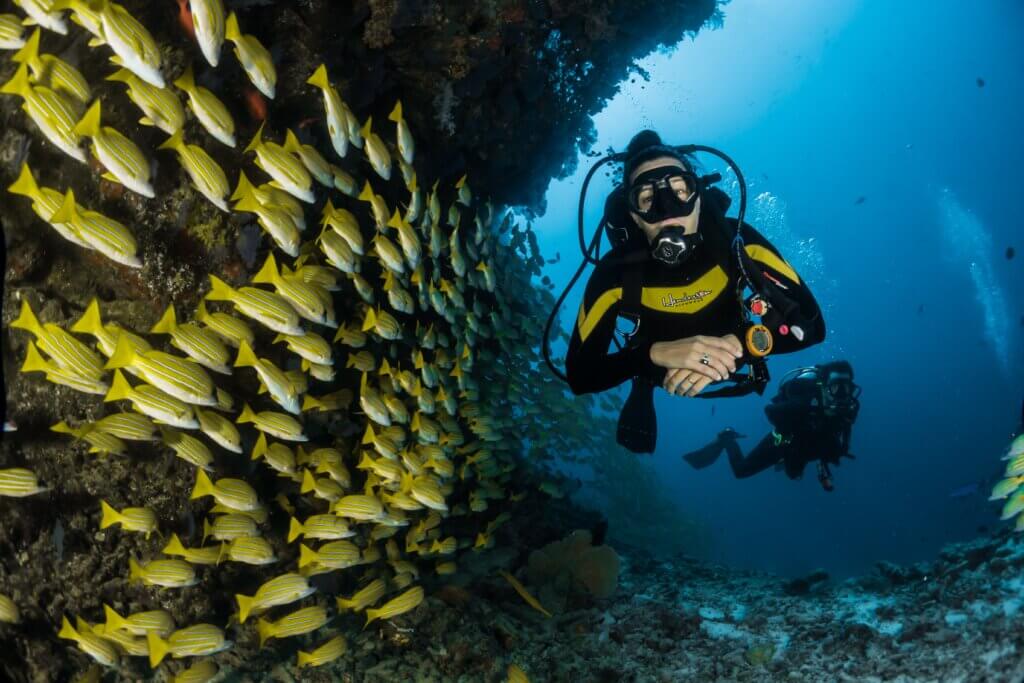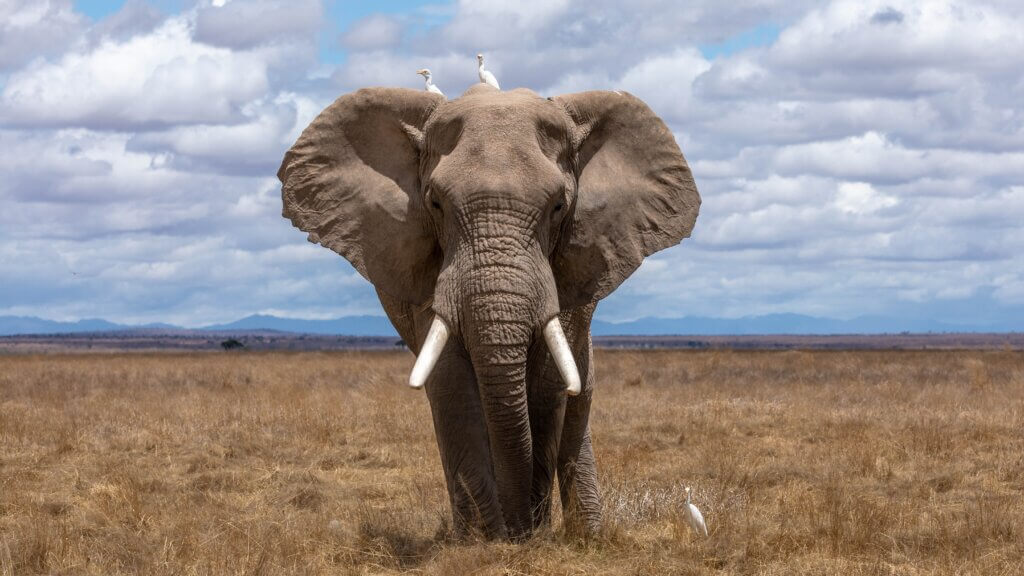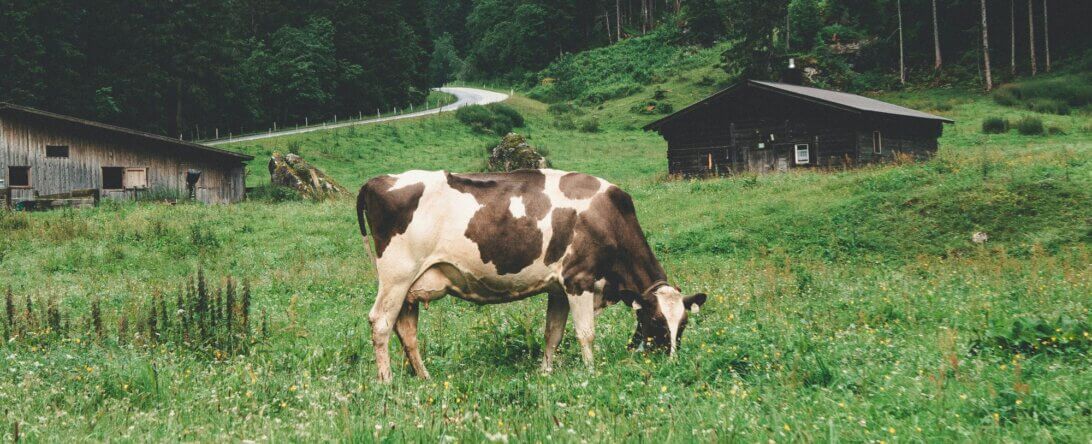Want a Career in Animal Rights? 10 Majors to Consider
Want to help animals for a living? Good news: There are many different fields of study to choose from! Everyone can make a difference for animals, and the best way to do so varies from person to person. We all have individual strengths, interests, and talents that can advance animal rights, and animals need supporters from all walks of life who come from a broad spectrum of career areas.
Whether your journey through higher education is about to start or is further down the road, it can be helpful to take a look at some ideas for compassionate degree programs. Look through our list of 10 animal rights–related majors and see what stands out to you!
MAJORS TO CONSIDER IF YOU’RE READY TO HELP ANIMALS
Animal Law
Animals deserve to be treated with respect and compassion, and many humans are working to write this principle into law. Going into animal law can put you on the front lines with these policy pros. Heads-up: Just like other law degrees, animal law is a postgraduate one. You’ll first need to earn an undergraduate degree in a field like philosophy, politics, or public policy.
The Lewis & Clark Law School at Lewis & Clark College in Portland, Oregon, offers the most comprehensive animal law program in the country. Earning your animal law degree there or at another school could jumpstart a career in creating legal protections for animals. Imagine leading the charge to get laws passed that would improve animals’ lives. 🤩
The Arts
That’s right—you can make a huge difference for animals with an arts degree. Majoring in fine arts, graphic design, cinematography, or another field in the arts can position you to help animals via your passion. Whether you love painting, photography, or film production, you can use your talent to gain support for animal rights issues.
Get inspired by these artivists (artists + activists) who are fighting speciesism. Like them, you can paint eye-catching campaign designs (using vegan art supplies), take evocative photos to expose corporations’ cruelty, or create a moving documentary that changes the way people think about other animals. You don’t have to be a strong public speaker or a scientist to advance animal rights goals—you can just be your creative self. 🧑🎨
Communications
Why would someone interested in animal rights major in communications? The same reason why someone interested in business, politics, or research would do so—because no matter which field you end up in, you’ll have to communicate with others. A communications program will sharpen your ability to organize your thoughts, explain your ideas, and persuade people to support your cause.
This degree opens up a ton of potential doors. You could work in journalism, public relations, marketing, or other industries to advance animal rights. You could build your career by creating social media posts to promote campaigns, covering breaking stories about animals, or writing animal rights–related content (like this article 😶).
Environmental Science
Combine your animal rights activism with climate activism by majoring in environmental science. In this degree program, you would study the impact that humans and other animals have on the planet. You would take several biology and chemistry courses and learn how to use critical thinking and problem-solving skills to protect Mother Earth. 🌎
The connection between environmental science and animal rights is simple—the environment affects all living beings. Sweltering heat, smoky skies, and powerful storms put countless lives at risk.
Plus, animal agriculture is terrible for the environment. By being compassionate to animals, we can cut carbon emissions and water waste and save the rainforest. An environmental science degree could pave the way for you to become a climate change analyst, ecologist, or conservation scientist and to help save our planet and the other animals who live here.
Vegan Culinary Nutritionist
It’s never been easier to make delicious vegan food. 👩🍳 With more and more people ditching meat, eggs, and dairy, the demand for plant-based food is booming. If you want to boost people’s confidence in their health while they make the ethical choice to leave animals off their plates, you could go for a major in vegan culinary nutrition.
Culinary schools and universities are starting to offer degrees specifically designed for vegan chefs and nutritionists. Check out these five colleges with top-tier vegan food curricula—like Lewis & Clark Law School, which has a large-scale curriculum on animal laws, or Georgetown University, which lets students work with legal staff on cruelty-to-animals cases.
MAJORS TO CONSIDER IF YOU’RE READY TO TAKE ON THE ANIMAL-EXPLOITATION SYSTEM
If you want to go into biology, pre-vet, or another science field, you may have to fight to avoid harming animals. To be clear, we aren’t telling you to skip going to school for one of these fields—we def need veterinarians like you—but be aware that these programs may not be 100% animal-friendly.
Some courses within these majors—like anatomy and physiology or animal reproduction—tend to be paired with laboratories that use animals. This may involve doing something with dead animals (e.g., viewing fetuses, body parts, or bodies) or live animals (e.g., burning off calf horns or examining female cows’ cervixes). Sometimes, participation is mandatory to receive credit, and you may not know what the labs will consist of ahead of time.
If you’re ready to take on the system, you can try looking for and requesting humane alternatives to any classwork that harms animals. We need game changers in these fields, and PETA is standing by to help—so get set to roll up your sleeves and push back against speciesism in your educational journey.
Animal Behavior
If you’re fascinated by the ways animals think and act in their natural environment, majoring in animal behavior may be the right move for you. You would learn about animals’ psychology and gain insight into their individual lives. Wouldn’t it be awesome to show the world how fascinating and complex animals’ behavior is when we observe them in nature? After graduating, you could conduct field research into animals in their natural habitat, rehabilitate injured wild animals, or work with animal companions and their guardians to help them form trusting relationships.
After graduating, you could conduct field research into animals in their natural habitat, rehabilitate injured wild animals, or work with companion animals and their humans to help them form trusting relationships.
Just keep in mind that you should be helping animals—not harming them. When conducting field research, be careful not to interfere with the animals’ lives. Also, check your course descriptions for animal dissection. If it’s a requirement, see if an alternative is offered. If not, meet with school officials. If they still won’t budge, you can start a petition to request animal-friendly alternatives.
Biology
This is a great place to start if you want to help animals but aren’t sure exactly which path to take. A biology degree would give you a broad overview of living organisms and put you in a prime position to pursue an advanced degree and become a humane scientist who doesn’t experiment on or otherwise exploit animals.
Sadly, most undergraduate biology programs include animal dissection and experiments on animals. 😢 But here’s the good news: You can take action to help end this cruelty. Use these maps to find schools in your state or territory that let you opt out of animal dissection. If your school requires it, follow these steps to fight for humane alternatives.
Marine Science
If you’re fascinated by life under the sea, marine biology is the perfect major for you. This degree would teach you about animals like whales, dolphins, fish, seals, and crustaceans so you could help people better understand and respect them. It could also offer memorable internship experiences like boating expeditions or SCUBA diving excursions. All these experiences could lead to a career that focuses on researching, exploring, and being an advocate for marine animals and our oceans.
Unfortunately, marine biology often includes animal dissection, but you can find courses that don’t require it. You should also be on high alert for courses or internships that require students to capture sea animals in nets. Choose only experiences that don’t harm, disturb, or frighten sea animals.
Pre-Vet
Have you always dreamed of becoming a veterinarian? Getting a bachelor’s degree in pre-veterinary medicine is the best first step you can take. You’ll study genetics, microbiology, biochemistry, and nutrition—all with the end goal of using your hands-on veterinary knowledge to help companion animals or work in a wildlife rehabilitation center.
Some programs have students use humane simulation models instead of live animals or work alongside veterinarians in clinical settings when learning procedures. However, other programs make students practice on animals who don’t need the procedures and are kept in laboratories, so you’ll want to do your research on the schools you apply to.
To become a practicing veterinarian, you’d need to complete a doctorate in veterinary medicine. It’s a four-year program that lets you focus on your favorite area of interest (e.g., small animals or horses).
If you want to work at a veterinary office without a veterinary medical degree, a veterinary nursing degree would teach you how to conduct X-rays, diagnostic testing, post-op care, and other clinical practices. You could also complete a veterinary technician program—veterinary technicians are in high demand, and getting that degree is typically only a two-year process.
Zoology
While biology students examine life in general, zoology majors examine the behavior, physiology, and classification of animals. You would learn how animals interact with each other and the environment. Coursework can include basic biology, chemistry, and animal behavior, and more advanced courses can include cellular biology, ecology, and genetics.
Your zoology major would be research-heavy, so why not keep flexing those research skills throughout your career? By working in areas like wildlife conservation and ethology (animal behavior), you could become the next Jane Goodall and conduct groundbreaking research that helps us understand animals more comprehensively. And remember: Research does not have to include experimentation on animals. You can learn so much by observing animals in their habitat from a respectful distance.
Some programs may not necessarily be called “zoology” but provide the foundation you’d need to get into a field that helps animals—either through a career in wildlife conservation (in which you’d most likely be able to observe animals in their natural habitats) or helping care for rescued wild animals in sanctuaries or rehabilitation facilities.
MAJORS YOU SHOULD NOT PICK
Just because a major is related to animals doesn’t mean it helps animals. For instance, dairy science and poultry science programs teach students about animals—but only how to exploit them for food.
Animals deserve to enjoy their lives and pursue their own interests. When you’re choosing a major, make sure it leads to work opportunities that don’t prioritize profit over animals’ well-being. You’ll want to steer clear of industries like animal agriculture and instead build your career on the improvement of animals’ lives through research, advocacy, or care.
Want to kick off your career with the most effective animal rights organization in the world? Come work for PETA! To save animals and make money at the same time, apply to be a Students Opposing Speciesism campus rep or a peta2 tour crew member, or browse through our job openings and internship opportunities.
*****
Even if you pick a major that’s not directly related to animal rights, you can still build a career helping animals by using the skills you perfected in college. Going to college to study animal rights–related issues is a great experience, but it’s not essential. The internet can provide you with endless information on animals and how to help them. And you can become an animal advocate right now—sign up for our Rewards Program, earn points by taking action for animals, and redeem those points for sweet merchandise. 😏
Whether you’re in high school or college, school is a great place to spread animal rights ideas. You can use your school projects to educate others and gain support for crucial issues.
Text peta2 to 30933 for ways to help animals, tips on compassionate living, and more!

Terms for automated texts/calls from peta2: http://peta.vg/txt. Text STOP to end, HELP for more info. Msg/data rates may apply. U.S. only.








